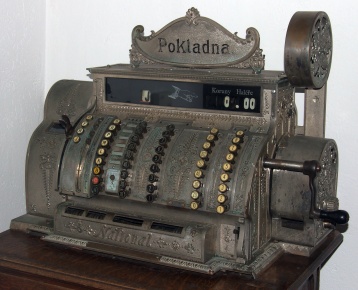Most people only have to attend one meeting when they file a bankruptcy which is called the Meeting of Creditors. This meeting is outlined in 11 U.S.C. §341 so bankruptcy attorneys often call it the “341 meeting” or simply a “341”. Normal non-attorney folks just call it the “Meeting of Creditors”.

When does the Meeting of Creditors take place?
This meeting will be set by the Court and it usually occurs between 4 to 6 weeks after the date of filing. The Court will mail you a notice with the date, time, and place but your attorney will probably tell you as well.
Where does the Meeting of Creditors take place?
There are four locations in Utah where these meetings take place. Usually your meeting will be assigned to the location nearest the home address you listed on your bankruptcy petition. The addresses to all four locations are listed below.
Federal Building
324 25th St.
Room 6026
Ogden, UT 84401
Ken Garff Building
405 S. Main Street
Suite 250A or 250B
Salt Lake City, UT 84111
Provo City Library at Academy Square
550 N University Ave
Room 308
Provo, UT 84601
Washington County Boulevard Office Building
87 N. 200 E.
3rd Floor
St. George, UT 84770
What do I need to bring to the Meeting of Creditors?
I covered this in another post but there are four things you need to bring:
1. Driver’s License
2. Social Security Card (or other proof in the form of a document not prepared by you with your full social security number listed on the document, like a W-2)
3. Most recent pay stub (the last pay stub you received before the Meeting of Creditors)
4. Bank statements covering the month of your filing date
What happens at the Meeting of Creditors?
You should arrive at least 15 minutes before your scheduled time so that your attorney can meet you there and discuss your case if he needs to. You will then go into the room with your attorney where the meeting will be conducted. Although your case will be assigned to be heard during a 1-hour block with a number of other people, usually your case will last only 10 minutes.
The trustee will go through his list and call the names of the cases for that time. When your name is called your attorney will go with you and will sit right next you in the seats upfront. The trustee will then ask you questions about your case and the petition we filed. Answer the questions truthfully and accurately. If you don’t know the answer then you can defer to your attorney. Below is a list of some of the more common questions the trustees ask:
· whether you have read through, understand, and signed your petition
· whether the information listed on your petition is true, complete, and accurate to the best of your knowledge
· whether you read the bankruptcy information sheet
· whether you have listed all your property in your schedules and whether you have listed accurate values
· whether you have transferred any property in the last two years
· whether you have repaid any of your creditors within the three months prior to your bankruptcy
· whether you have repaid any relatives or close friends in the last year
· whether you have sold or given away any property or transferred any money in the past several years
· how you determined the value of your property listed in your paperwork
· whether your income is accurate in your schedules and on your “Means Test”
After the trustee asks you questions about your petition, he will then ask “are there any creditors with questions?”. At this point any of your creditors may come forward to ask you questions. Most of the time there are no creditors with questions. If you owe the State of Utah money then the Utah State Tax Commission will be sure to show up. If you have purchased something from RC Willey you can bet that they will be there. But for most creditors it’s not worth paying someone to appear at the meeting because they are not likely to recover anything.
Once the trustee and the creditors have finished asking questions then you are free to go. Sometimes the trustee will ask for some additional documentation and if he does then get that to your attorney ASAP so he can get it to the trustee.
Should I be a nervous Nellie about the Meeting of Creditors?
No, you should not be a nervous Nellie about the Meeting of Creditors. There is no reason to be nervous. The Meeting of Creditors is not held in a Court nor is it before a judge. You will be placed under oath and are required to answer truthfully. The reality is this—if you have been honest with your bankruptcy attorney and all your financial information is provided in your petition then you really have nothing to hide.
So, just tell the truth and you will be fine. Trust me, I’ve been to a gazillion of these and it’s really not as bad as most people picture it in their minds.
How should I dress for the Meeting of Creditors?
It actually surprises me how few people ask me the question. However, it doesn’t really matter how you dress in my opinion and I don’t think the trustees care either. I’ve seen a variety of attires ranging from the dingiest jeans to expensive and fancy suits. Again, I honestly don’t think it matters how you dress.
What happens if I don’t attend my Meeting of Creditors?
If you don’t attend your Meeting of Creditors then you have made a huge mistake. If you don’t go to your 341 Meeting your case will be dismissed. You will not receive a discharge of your debts and the automatic stay will no longer be in effect. If your case is dismissed you can still file again but you will have to pay the filing fee again and the automatic stay is limited for repeat filings. The point is this: DO NOT MISS YOUR MEETING OF CREDITORS! If for some reason you have a scheduling conflict that you cannot resolve, contact your attorney as soon as possible so that he can try to reschedule the date.
If you have more questions about the Meeting of Creditor be sure to ask your attorney. Bankruptcy attorneys sometimes gloss over the details of the Meeting of Creditors simply because there are so many things they could tell you but they don’t have the time and you don’t really need to know everything they could tell you. But if you have more questions, ask your attorney and he should be able to give you an answer.

 One of the most important things you need to do when preparing for a bankruptcy is to identify all your creditors. You are required to list all of your debts and creditors on the bankruptcy petition. I’ve had a number of clients ask me ‘how do I identify all of my creditors?’
One of the most important things you need to do when preparing for a bankruptcy is to identify all your creditors. You are required to list all of your debts and creditors on the bankruptcy petition. I’ve had a number of clients ask me ‘how do I identify all of my creditors?’

